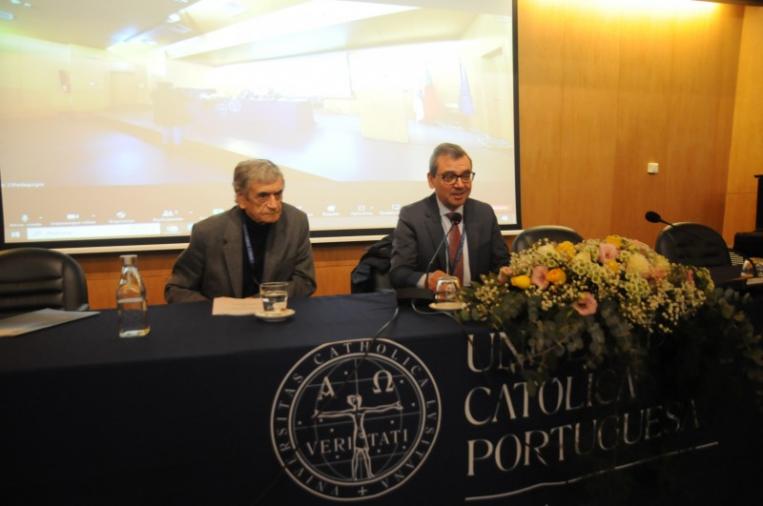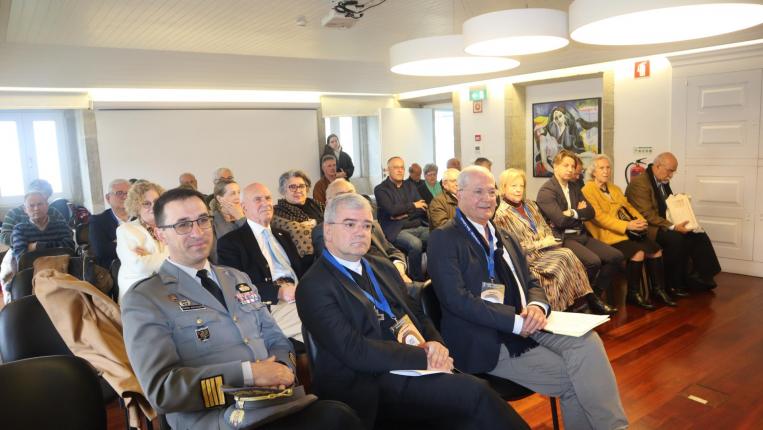Laborinho Lúcio argued yesterday that we must put an end to the myth that entering school guarantees equal opportunities for all. "Equal opportunities lie in leaving school".

"We have to put an end to the myth that entering school guarantees equal opportunities for everyone. We have to be able to assume that equal opportunities lie at the exit from school, not at the entrance", defended judge Álvaro Laborinho Lúcio yesterday, for whom school "is today an instrument on the road to peace".
Laborinho Lúcio was speaking at the 5th International Congress of Pedagogy - 'Education and Culture of Peace: Memory, Truth and Forgiveness', an initiative that kicked off yesterday and runs until tomorrow at the Faculty of Philosophy and Social Sciences of the Braga Regional Center of the Catholic University.
The judge explained that he considers the idea that entry to school guarantees equal opportunities to be "a myth". "It's not getting into school that guarantees equal opportunities to access education. It is education that guarantees equal opportunities for access to life," he said.
The speaker also pointed the finger at the "myth of equality in student assessment", arguing that "once and for all" we have to "recognize that equality in student assessment in a public school with universal and compulsory attendance is a myth". He continued: "It's a myth that needs to be dispelled because it has absolutely harmful consequences, right down to the misunderstanding of competition in pedagogy for life. It's not in competition that we teach how to be in a competitive society. It's in creating autonomy in students, in preparing them for life".
This is why he criticizes "the false equivalence between combating underachievement and facilitating the evaluation of merit", stressing that it is possible to combat underachievement "by demanding the evaluation of merit".
In the same vein, he argued for an end to the persistence of the passive teaching and learning model.
“In other words, the right to peace through education and educational violence as a threat to peace. Violence that undermines children's fundamental rights in the name of a mere appearance of success, which is often more formal than real," he said.
In conclusion, he quoted Pope Francis who, at the Pontifical Academy of Sciences, asked its members "to promote knowledge that promotes the building of peace". He also said that it is necessary to "value all knowledge based on science in order to avoid wars. And then the world's scientists can unite and form a force for peace". And he recalled that before that, in one of his Apostolic Letters, Pope Francis had already said "that an education is needed that teaches critical thinking and offers a path to maturing in values. This is perhaps the most promising of all the paths to peace," he concluded.
Law "is one of the most extraordinary inventions"
“The rule of law, with its three fundamental principles, can still be an area of cohesion and convergence," Laborinho Lúcio defended, recalling that the first of these principles "is the rule of law, which allows us to affirm the equality of everyone before the law".
"It's fundamental today to affirm the rule of law, converging with the affirmation of the rule of law the return of law," he said, in an affirmation "as a citizen".
"We are living in a time of crisis for the Law and, above all, a time of crisis for demonstrating the importance of the Law," he said, pointing out that "the Law itself is perhaps one of humanity's most extraordinary inventions and it is precisely the Law that we need to recover in order to have in our hands an instrument that allows us to move towards peace." The wars we are witnessing "are themselves the result of the lack of effectiveness of law, especially international law," he said.
The fragility of human rights
The second principle is that of democratic pluralism, and takes us "to another notion of freedom. Freedom no longer as an individual linked exclusively to the individual, but freedom in its political and civic sense." Regarding the third pillar, Human Rights, he warned of its fragility. "We have to be aware that this fragility can only be overcome by our direct involvement as activists in the daily defense of human rights."





